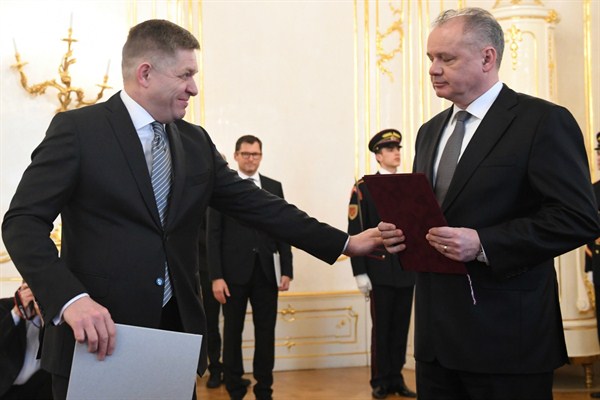Slovak Prime Minister Robert Fico stepped down from the post he has held for 10 of the past 12 years on March 15, amid the biggest protests to have rocked Slovakia since the Velvet Revolution that toppled the Czechoslovak communist regime in 1989. A political deal has been thrashed out to keep the three-party governing coalition, led by Fico’s center-left Smer party, in power. But few expect it to survive long, leaving nationalist and populist parties in prime position to take advantage of a potential early election.
The threat to Fico’s long domination of Slovak politics is a direct consequence of the brutal murder of investigative journalist Jan Kuciak and his fiancée in late February. Critics, who say Fico’s exit would come not a moment too soon, accuse him of corruption and cronyism.
But if Fico is ultimately forced to remove himself from even a behind-the-scenes political role, who will fill the void he leaves behind? Polls show support for Smer slumping to 12-year lows of around 20 percent, while antipathy to Fico has risen to over 60 percent.

